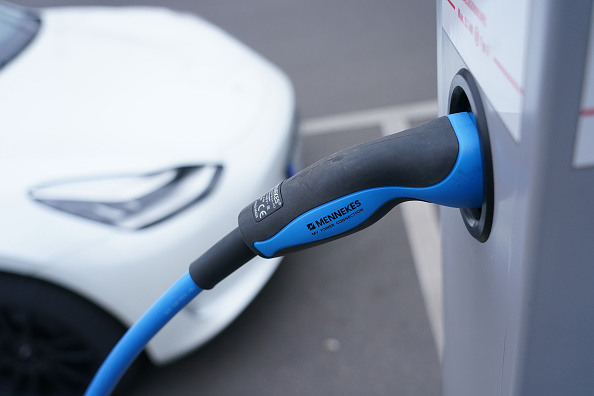Researchers Optimize EV Batteries For A 10 Minute Charge
Read Time 2 mins | September 02, 2022 | Written by: Julia Segal

Would speeding up the EV charging process encourage hesitant drivers to make the switch to electric? Scientists report a new superfast charging method that powers different types of electric vehicle batteries in ten minutes or less.
Eric Dufek, Ph.D., whose team presented results at the American Chemical Society fall meeting, says that “fast charging is the key to increasing consumer confidence and overall adoption of electric vehicles”.
Dufek’s team of researchers have used machine learning to determine how to charge a lithium-ion EV battery to a 90% charge in 10 minutes. They have done this by training an AI to “predict how and when EV batteries would eventually fail and then find the optimal way to rapidly charge without causing the damage that would lead to those failures”.
Electric vehicles are fueled with lithium-ion batteries. As charging occurs, lithium ions migrate from one side of the device to the other, from cathode to anode. Speeding up this process can cause damage – while the battery is charged more quickly, the lithium ions might not fully move to the anode, resulting in lithium metal building up and early battery failure or the cathode wearing and cracking.
In order to account for charging protocols that optimize speed and avoid battery damage, it’s necessary to collect a lot of data to figure out how to tailor charging solutions. Dufek and his team at Idaho National Laboratory are doing just that, using machine learning techniques that incorporate charging data to create charging protocols. The machine-learning analysis predicts the lifetimes of different designs based on the lithium-ion batteries in their charging and discharging cycles. The team tested these new optimized protocols on real batteries.
The key was increasing the amount of energy that could go into the battery cell in a short amount of time without lithium plating or cathode cracking. Now, the team is seeing batteries charge to over 90% in 10 minutes. Their future plans involve using their model to help design new lithium-ion batteries optimized for fast charging. It would be a huge step forward for EVs to “tell” their charging station how their specific battery needs to be charged. Another next step would be if this method convinces car companies to make electric vehicles with smaller batteries, allowing for quicker charging.
Optimizing battery design is important for charging that’s effective and that doesn’t cause damage, particularly as more electric vehicles are developed by many different companies. The time it takes to charge an electric vehicle than say, make a stop at the gas station, is a big determinant for drivers deciding whether or not to make the switch to electric. If charging can occur quickly and safely, this may just push more on-the-brink prospective drivers to go EV.
